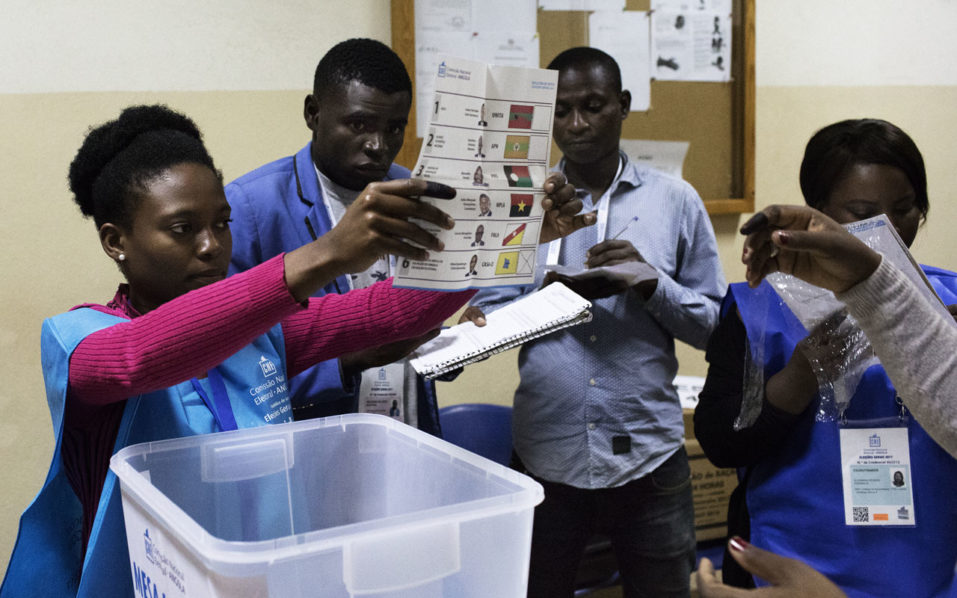
Angolans on Thursday awaited results from an election to chose a successor to President Jose Eduardo Dos Santos, a secretive and much-criticised leader stepping down after 38 years in power.
The electoral commission was expected to release first partial results later Thursday, with the ruling MPLA widely predicted to retain power and install its candidate Joao Lourenco as president.
The MPLA, which has ruled since Angola’s hard-fought independence from Portugal in 1975, was quick to claim it was heading for victory, but the party could suffer a fall in support due to the county’s economic woes.
“The (voting) process proceeded normally,” electoral commission chief Andre da Silva Neto told reporters a day after the election.
“We are satisfied with the behaviour of the voters, it is joy for us and for Africa.”
In the run-up to Wednesday’s election, the two principal opposition parties, UNITA and Casa-CE, alleged the campaign had not been fairly conducted.
They complained that they had been deprived of media access and that voters in opposition strongholds were being forced to cast their ballots at polling stations far from their homes.
‘Unavoidable victory’
Before first results were released, the MPLA’s central committee spokesman Joao Martins declared in the local media that the party’s victory was “unequivocal and virtually unavoidable”.
“The commission has not yet released results, how can the ruling party declare itself the winner?” asked UNITA spokesman Alcides Sakala.
“The MPLA is desperate.”
The opposition parties hope to have tapped into public anger over inflation that peaked at over 40 percent last year, low growth and high unemployment.
Dos Santos’s long reign saw the end of Angola’s bloody civil war (1975 to 2002) and a post-conflict investment boom as the country exploited its oil reserves.
However, a slump in crude prices in 2014 hit the country hard.
“I am waiting for things to change, for more work, more schools, more hospitals and everything else,” MPLA supporter Rosaria Almeida said as she cast her ballot.
Doubts over ‘handpicked’ heir
Dos Santos’s handpicked successor Lourenco, 63, has vowed to boost foreign investment, and said he wants to be recognised as the man who brought an “economic miracle” to Angola.
But many doubt that the MPLA loyalist who served as defence minister until last month will have the capacity to fight endemic corruption or to tackle dire poverty.
The MPLA, which won 72 percent in the 2012 election, has funded a rush of infrastructure projects, apparently to shore up support levels among Angola’s 9.3 million registered voters.
Turnout appeared generally low around polling stations visited by AFP in the port capital Luanda.
“First impression suggests that abstention could be the big winner of this Angolan election,” said Human Rights Watch researcher Zenaida Machado.
Dos Santos has been dogged by reports of illness, with his regular visits to Spain for “private” reasons fuelling criticism that the state of his health was being hidden from ordinary Angolans.
Amnesty called for Angola’s next leader to “guide the country out of the spiral of oppression” and castigated Dos Santos’s “appalling human-rights record”.
Critics often accuse him of ruthlessly suppressing dissent and enriching his family and the ruling elite.



